Have you ever wished you’d invested in Google when it was an underdog?
When a startup is an underdog, we often underestimate its potential. Then, before we blink our eyes, we realize that we’ve missed the opportunity to invest in the company. Sound relatable? You’re not alone. Whether you are an investor, founder, or leader, you always want to look for the best opportunities, the best jobs, the best career path, and the best companies that can change your life.
Google may have gone out of your hands, and now, with the AI boom you don’t want to risk your money and time in the company. That’s why in today's post, I want to introduce you to the 12 best tech companies that have the potential to become the next Google—the companies that can make you filthy rich!
But before we dive into the details, I want to clarify that I’m not affiliated or partnered with any of the following companies. It’s just that I think these companies are still underdogs. Although they may not become as big as Google, but I do think they have the potential to become some of the most valuable tech companies in the coming years or decades. And for this reason, if you want to work or invest in any of these companies, make sure you do your due diligence.
Get your popcorn ready and let’s dive in!
1. Perplexity AI
Throughout the post, you’ll find me talking a lot about the emerging Google competitors, especially AI tools. Because I firmly believe, some of these AI tools are directly going to take a sliver of Google search traffic, and it’s already happening!
As these AI tools are improving and evolving, our habits of using and searching for information on the internet are changing. Take me, for example, I use these AI tools more than I use Google now. Because what an AI tool like Perplexity does is, it allows you to ask follow-up questions, which Google doesn’t, and that’s where Google loses. A tool like Perplexity uses AI to help users search the web in a chatbot interface, which is why it’s unique and more helpful.
Aravind Srinivas, the co-founder and CEO of Perplexity, shared a tweet, in which he said “Perplexity now serves 100M queries per week!” Rumour is that they’re also seeking to raise their next funding. FYI, Perplexity does ~$50 million in annual revenue.
Perplexity grew this year by 400%—from 2 million in 2023 to 10M users in 2024.
The company was founded in 2022 in San Francisco by Aravind Srinivas, Johnny Ho, Denis Yarats, and Andy Konwinski. To date, they’ve raised more than $74 million in total venture capital. Also as I said previously, they’re in talks with the next funding at a valuation of $8 billion.
Learn more about Perplexity AI.
2. Eight Sleep
The global sleep market is a $64.15 billion industry.
Let’s be honest: We all want to improve our sleep quality in some way or another. That’s why we do things like taking sunlight in the morning, going for a quick walk or run, meditation, not taking caffeine after 3 pm, and avoiding screen time 30 minutes before sleeping. Why? because we don’t just want to feel healthy, we want that damn good night's sleep too, don’t we?
Getting a good sleep is non-negotiable.
That’s what Eight Sleep is building. Eight Sleep wants us to have the best sleep quality possible—to improve our productivity, performance, and overall quality of life.
Matteo Franceschetti and Alexandra Zatarain, the co-founders of Eight Sleep, say their big goal for Eight Sleep is to become the world’s best predictive health platform.
They’ve got this Pod 4 Ultra sleeping mattress which does a great job of tracking your sleep quality score, and as it collects more and more data on what works and what does not for your sleep condition, it improves and adjusts the temperature, posture, cooling system, etc over time—so you can have quality sleep.
Eight Sleep, the company focused on sleep-enhancing technology was founded in 2014. The company has raised around $173 million in venture capital, including significant funding in 2021 that brought the company’s valuation to $500 million.
What’s more… Eight Sleep’s products are publically endorsed by notable figures like Elon Musk, Mark Zuckerberg, Andrew Huberman, and Petter Attia.
Learn more about Eight Sleep.
3. Stripe
What comes to your mind when the talking point is “Accepting Payments”?
It’s probably Stripe, right?
Let’s face it: Before Stripe, accepting and sending payments online was hard. Of course, there was PayPal, but it wasn’t an easy and reliable choice for enterprises and businesses. And this is what Stripe’s founders saw when they sold their first company.
When Patrick and John Collison sold their first company Auctomatic for $5M, they realized how hard it is to collect and manage finances online. They knew there was an opportunity, and they also knew that they could solve the problem.
The idea stuck and they launched Stripe in 2011.
Fast forward to today, Stripe is a leading platform for accepting, sending, managing, and tracking money/finances online for individuals, businesses, and enterprises—at scale.
And why not? Stripe is extremely good.
The features it has are so amazing. Name any big companies, and you’ll find that they probably use Stripe for financial transactions—X (formerly Twitter), Amazon, Salesforce, Google, WhatsApp, BMW, Shopify…You name it.
Stripe processed $1 trillion in total payments in 2023, which is 22.4% more than 2019 $817B total payments. And I am pretty sure the number for 2024 payments would be off the chart. The company's total valuation is $70 billion!
Learn more about Stripe.
4. Substack
Substack is going to be a big “Thing” on the internet.
Some people would say, Substack is spreading itself too thin, but I’d argue that it's great for the platform's growth. Remember how Amazon became an “Everything store” from a “Bookstore”? Amazon thrived because Jeff Bezos innovated and elevated the product. If Amazon hadn’t evolved, you probably wouldn't even know what the hell Amazon is today.
And I guess that’s what Substack is also focusing on—they don’t just want to be a newsletter platform for writers. If they want it to be a billion-dollar company, they need to iterate and innovate the product—the way you do it is by launching and experimenting with different products, features, and approaches.
Part of the reason why I use Substack is that…one, it’s free. Two, it does all the organizational parts for me—like creating the home page, optimizing the funnel, and managing all subscribers, Three, it has an organic growth system, which other platforms like Beehiiv and Converkit do not. But if these features weren’t on Substack, I may not have been using this platform.
And that’s why you see many people use Substack.
Substack was founded in 2017 by Chris Best, Hamish McKenzie, and Jairaj Sethi. The company has raised a total of around $100 million in venture capital. And as of 2024, Substack’s valuation is estimated to be $650 million.
By early 2023, Substack had over 20 million active subscribers (more than 2 million paid subscribers!), which has grown significantly in 2024—crossing more than 45M active users. However, the total number of paid subscribers on Substack isn’t publicly available.
Substack growth over the last 5 years via Google Trends:
Learn more about Substack.
5. Anthropic (Claude AI)
Did you see the recent update from Anthropic about Claude's AI potential?
It’s mind-blowing. Claude AI now has the ability to control your laptop or PC and perform the task on your behalf. All you have to do is just give it the prompt or instructions related to your task, and it’ll do the task in a few minutes or so.
How does it work?
You give it the instructions related to your task, it’ll move the cursor, type the keywords, read the screen, and perform and understand the language—everything itself.
Want to create a website but don’t wanna code? Let Claude AI do it for you.
What to make a spreadsheet but don’t wanna do it manually? Let Claude AI do it for you.
Want to find the best travel destinations but don’t wanna research? Let Claude AI do it for you.
It’s so amazing that it can do these mundane tasks for you. However, it’s still in beta mode since developers are trying and testing it. But Anthropic has said it’ll soon be available for everyone to use.
The company was founded by former employees of OpenAI, Dario Amodei and Daniela Amodei in 2020. Anthropic has raised $7 billion from investors and is looking for the next round of funding with a valuation of $40 billion.
Claude AI growth over the years:
Learn more about Anthropic (Claude A).
6. Mercury
The traditional banking system is rigged.
But as the internet is evolving and keeps growing, people are changing and improving where and how they want to store and manage their money. People want an easy, reliable, and smooth process for managing and handling money in the digital world.
And that’s what Mercury does.
It’s a bank for businesses and enterprises. Although it has partnered with other banks to work like a bank, because it’s NOT actually a bank—it’s a financial technology company that operates on behalf of its partnered banks.
People love using it, and why not? You don’t have to run around your local bank branch or handle the procedure offline, which often feels chaotic. Mercury handles everything online—from opening your bank account to managing and handling your money, which most people want, don’t you?
The company was founded in 2017 by Immad Akhund, Jason Zhang, and Maximilian Tagher—aiming to provide banking services to startups. Since its launch, the company has grown pretty quickly and become a notable platform in the fintech industry, especially after the Silicon Valley bankruptcy.
The company has raised more than $150 million in venture capital from investors. If we talk about the valuation, the company’s current valuation is around $2.13 billion—making it one of the leading fintech companies in the world.
Learn more about Mercury.
7. xAI (Grok)
I think you should never bet against Elon Musk.
xAI was founded by Elon Musk, the man who makes electric vehicles, builds reusable rockets and sends them to Mars, makes chips that fit into human’s brain, digs tunnels where vehicles drive, owns a social media platform X where freedom of speech is the fundamental right.
His achievements are endless.
To give you a general idea…xAI’s Grok is a competitor of OpenAI’s ChatGPT, Anthropic’s Claude AI, Perplexity AI, Meta’s Llama, and Google’s Gemini. With the help of Grok, you can create images, write, and generate graphics—just like other AI tools.
But you have to be a Twitter (X) premium to access Grok.
Now here’s a sneak peek of the story of why Elon Musk founded xAI:
When Elon Musk saw how OpenAI was pivoting from a non-profit organization to a for-profit organization and solely focusing on monetization, he didn’t like it and raised concerns about humanity (He seems to care a lot about humanity)—As he believed that OpenAI was not supposed to be doing that. He also shared tweets about it and even had a few controversies about it on Twitter with OpenAI.
And that’s why he thought of founding an AI platform in July 2023, called xAI.
The company has raised $6 billion from multiple investors. And, as of October 2024, xAI is reportedly pursuing a valuation of around $40 billion—following its previous post-money valuation of $24 billion after the Series B funding round.
Learn more about xAI
8. OpenAI (ChatGPT)
As of 2024, OpenAI is one of the leading AI companies in the world.
However, I’m a bit skeptical about its current valuation of $157B. They’ve raised $6.6 billion recently with the current valuation. But there are a lot of things going on in OpenAI that don't seem positive. For example, all of a sudden the executive team left the company, it was technically a non-profit company, but the co-founder of OpenAI and founder of ChatGPT, Sam Altman, turned it into a for-profit organization, which raised a lot of concern and questions to people around the world.
One of the people who constantly ask and raise questions about the OpenAI’s work is Elon Musk, he has tweeted about it several times, for example like this one.
But at the end of the day, who cares, you know. Investors want profits, employees want good salaries, and founders want good equity with astonishing growth. And I think that’s the main point. None of the controversies and concerns matter as long as the company is growing and profitable.
A few days ago, they released the (ChatGPT search) SearchGPT—a tool that has been made to work like a search engine and directly compete with the Google Search engine.
With the previous versions of ChatGPTs, you needed to either click on the provided link by ChatGPT or find it manually on the web—meaning there were no “Web” search engines built into ChatGPT.
But now, ChatGPT is your new search engine, just like Google.
The company was founded by Elon Musk, Sam Altman, Greg Brockman, Ilya Sutskever, Wojciech Zaremba, and John Schulman in 2015. OpenAI became a notable company when OpenAI launched ChatGPT 3 in 2022, founded by Sam Altman.
You might already have seen this type of chart where it says “How long it took for companies to reach 100 million users.” Astonishingly it took just 2 months for OpenAI’s ChatGPT to reach 100 million users, which is pretty mind-boggling.
Learn more about OpenAI.
9. Notion
Notion is a tech company with a $10B in valuation.
It’s a platform that allows creators, teams, and organizations to collaborate and operate. It also allows creators and individuals to make files, databases, and structure tasks in an easy, good-looking way.
However, there are many competitors of Notion in the market. But still, it stands out for its simple, easy-to-use interface, and unique user experience. And although the company’s growth seems pretty stagnant these days. But I’m still bullish on Notion and have faith that it will be a more valuable company in the future.
Notion was founded by Ivan Zhao in 2013. The company has raised more than $300 million in capital, with its latest funding round—valuing it at around $10 billion.
Learn more about Notion.
10. Asana
Asana is a work management tool that allows the team to collaborate, set deadlines, track progress, and exchange ideas and information in one place.
Two Facebook employees, Dustin Moskovitz and Justin Rosenstein founded the company in 2011 and made it publicly available for everyone to use in April 2012. Since then the company has grown significantly and got notable reaction in the market. Big companies like Google, Deloitte, and Nasa use Asana to collaborate and work with their teams.
The company went public directly on the New York Exchange in 2020. It was once traded for $10B but now the total market cap of the company is $2.78B.
The company's total revenue over a couple of years:
Learn more about Asana.
11. Airtable
Don’t get confused, Airtable and Asana are not similar software.
When you want to collaborate and streamline workflow with your team, you want to use Asana. But when you want to have a spreadsheet & database in the most efficient manner, you go for Airtable.
Both tools serve different purposes.
Airtable is mostly used for collecting data through forms and having that data in the most organized way to judge and evaluate. For example, when you want to survey your audience, pitch for brand Sponsorships, or gather some sort of specific data online.
The company was founded by Howie Liu, Andrew Ofstad, and Emmett Nicholas, in 2012. Since then Airtable has grown significantly. And now the company is worth $11.7B—making it one of the most valuable companies in the world.
A few more key insights about the company:
Total funding secured: $1.4 billion
Total company valuation $11.7 billion
Using the product 80% of Fortune 500 companies
$375M ARR by the end of 2023 with 50% growth YoY
Learn more about Airtable.
12. Skool
As content is becoming a commodity, people need personalized experiences.
Social media platforms don’t allow you to own your audience. Your account can get banned, canceled, suspended, or deleted at any time. You don’t own your social media followers. That’s just one thing, the other thing is that social media engagement is rigged—less than 1% of your audience sees the content you post.
In a world of AI, communities will thrive.
A community allows you to connect with your audience, and have a personalized interaction with them, which makes the experience unique and valuable. What’s more…a community helps you increase the engagement of your posts, and deepen the trust with your audience.
And that’s what Skool is building.
Skool is a platform that helps creators and artists create communities and generate income directly from it. After selling his first company, Consulting.com, Sam Ovens started working on Skool in 2019 and publicly launched it for everyone to use in 2022.
This year, Alex Hormozi invested and became the co-owner of Skool, which makes it even more special because Alex, the founder of Acquisition.com, is an OG of branding and marketing. And that’s why I think, Skool has the potential to become a multi-billion dollar company in the coming years. However, the financial number of Skool is not publicly available. But my guess is Skool is valued at anything between $50M to $200M as I’m writing this.
A few stats that I thought were fascinating about Skool’s community growth:
Daily Growth Rate: Percentage: 0.62%
Weekly Growth Rate: Percentage: 4.41%
Monthly Growth Rate: Percentage: 20.29%
Yearly Growth Rate: Percentage: 846.71%
Learn more about Skool.
Thanks for reading, catch you in the next one.





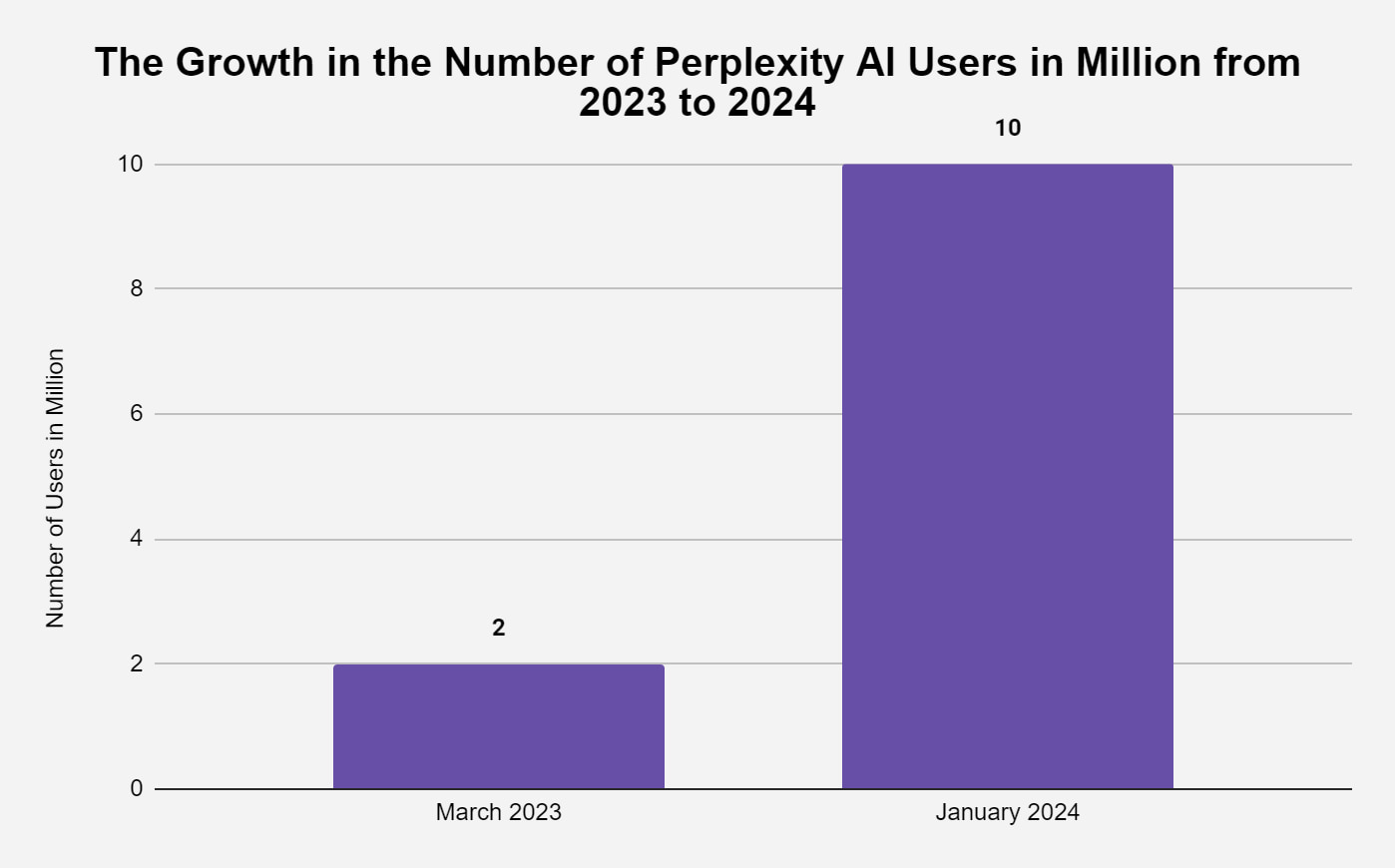



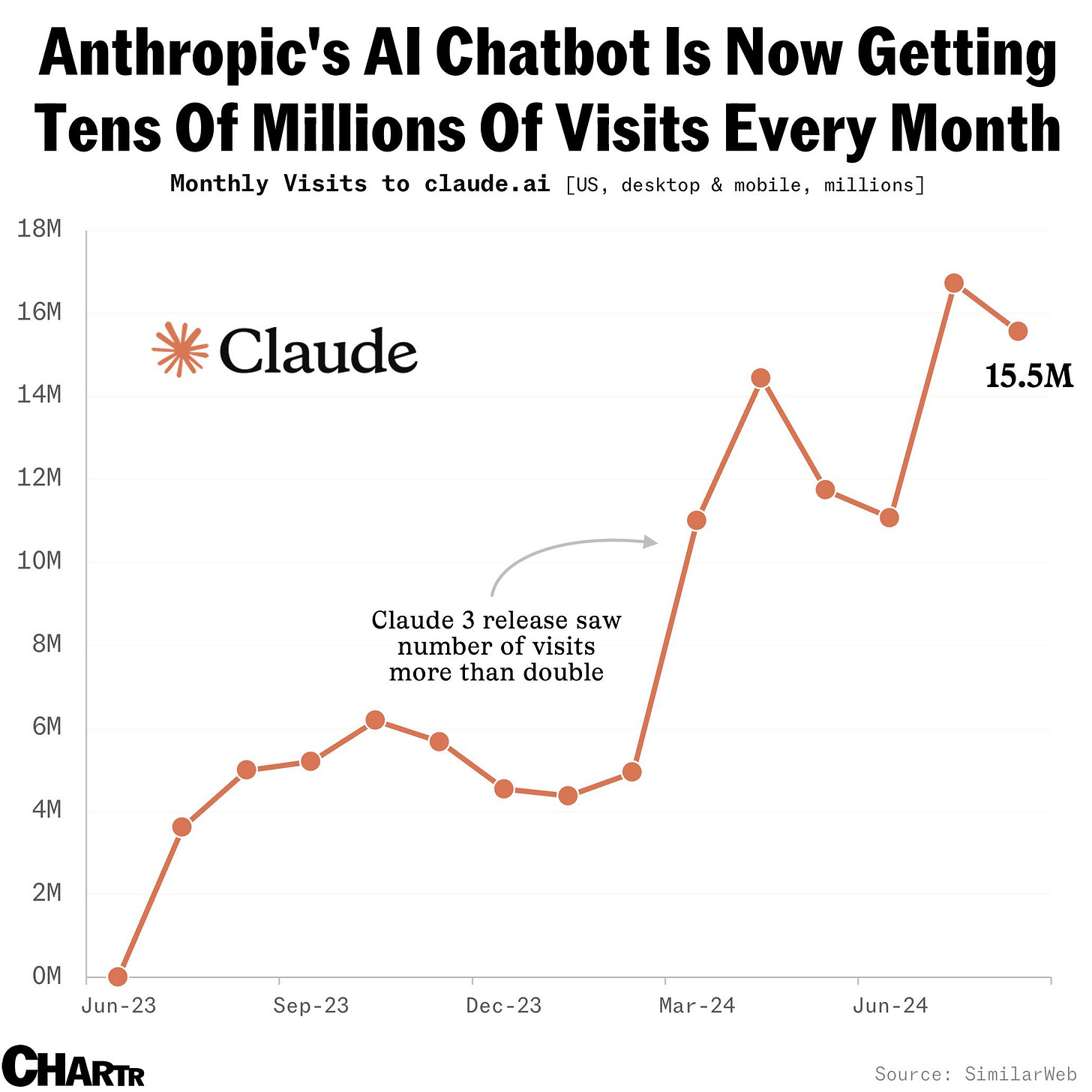


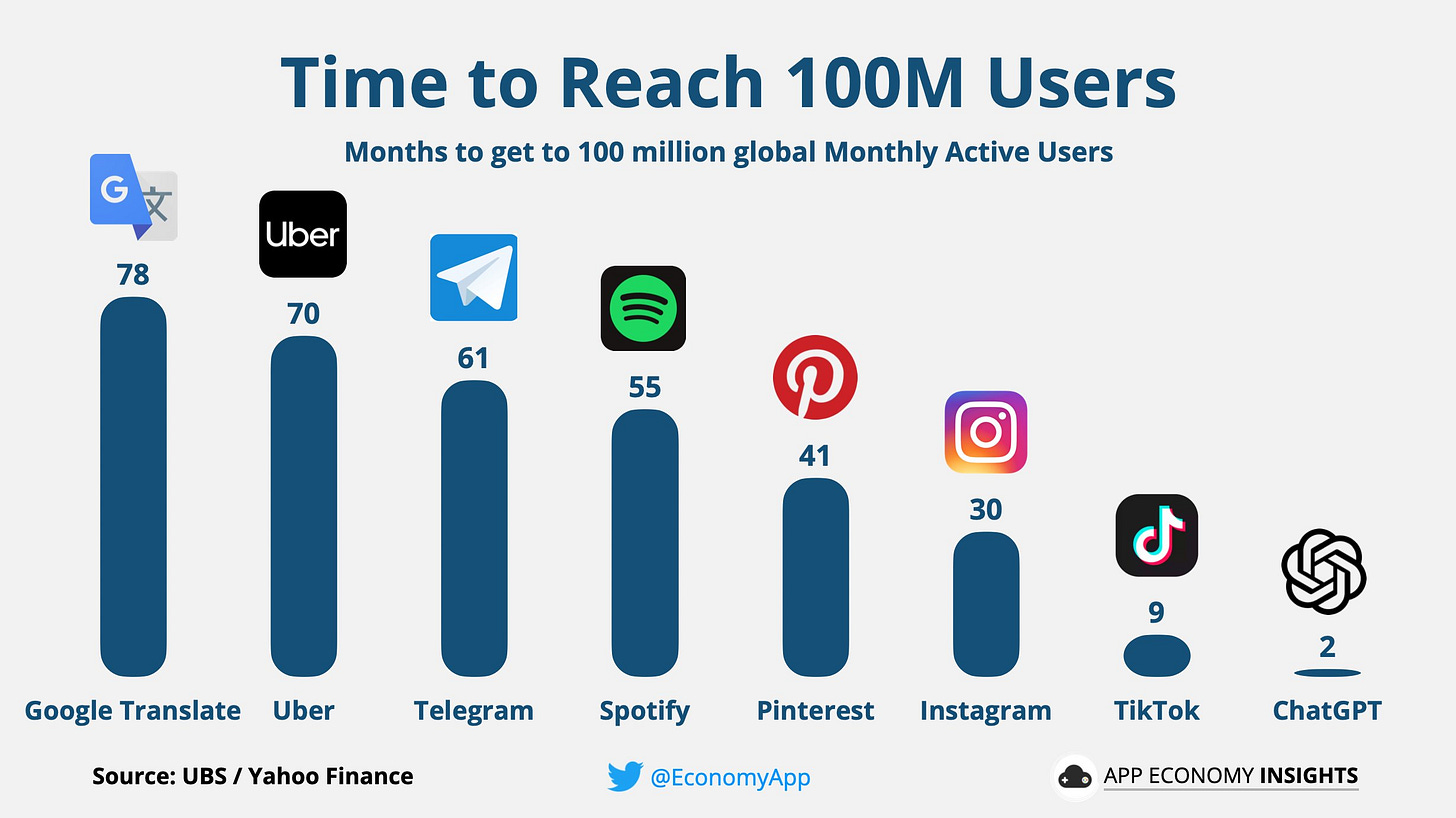

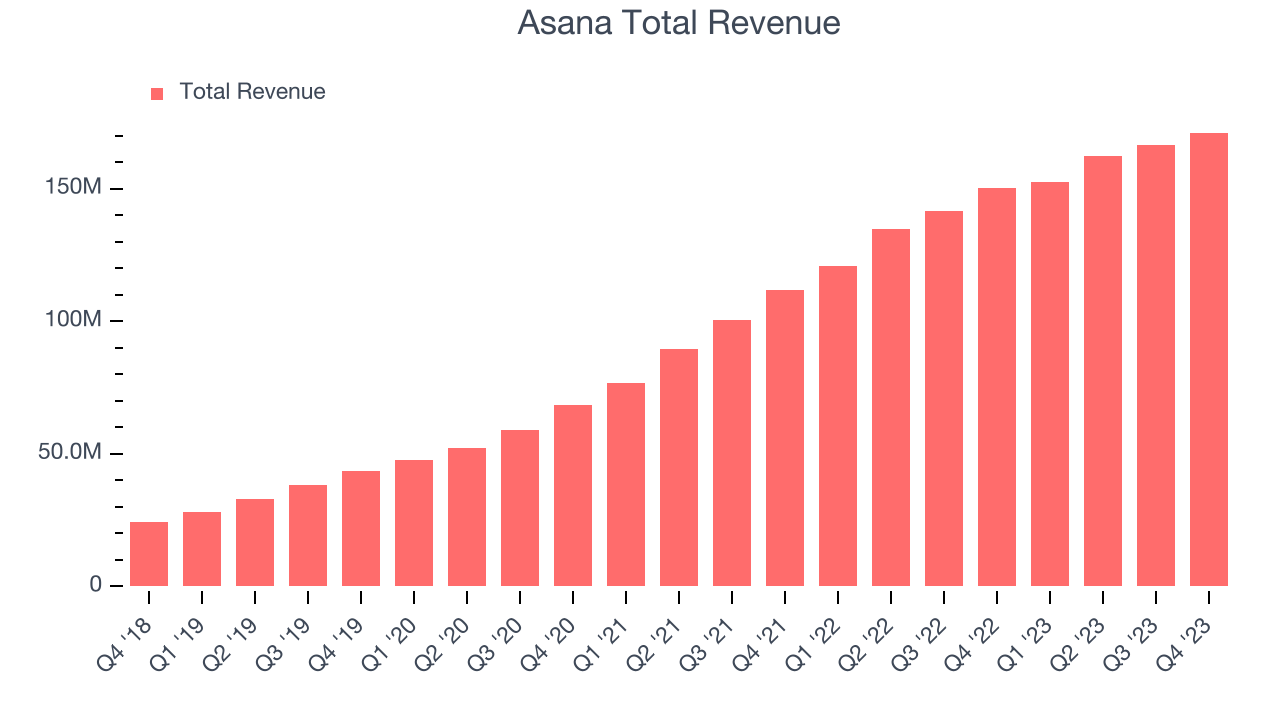
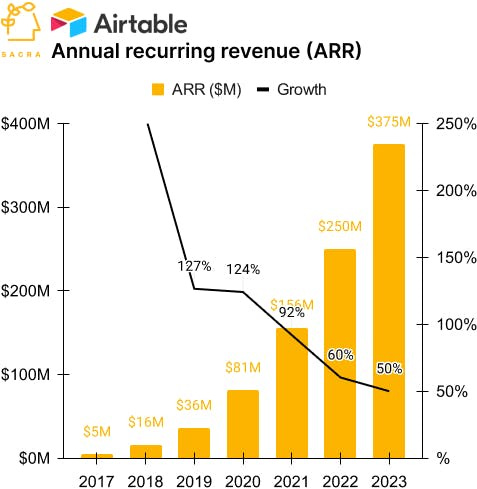

How do we invest in these companies?
\I’m \\\\\\\\\\\\\\\\ aaaa an aaaa//////
Aaas
A
//a/aaaaa as aaaa as a a as a a a a a a///// a. A a aaa a aa as aaaaa a aa aa a. A a Mac